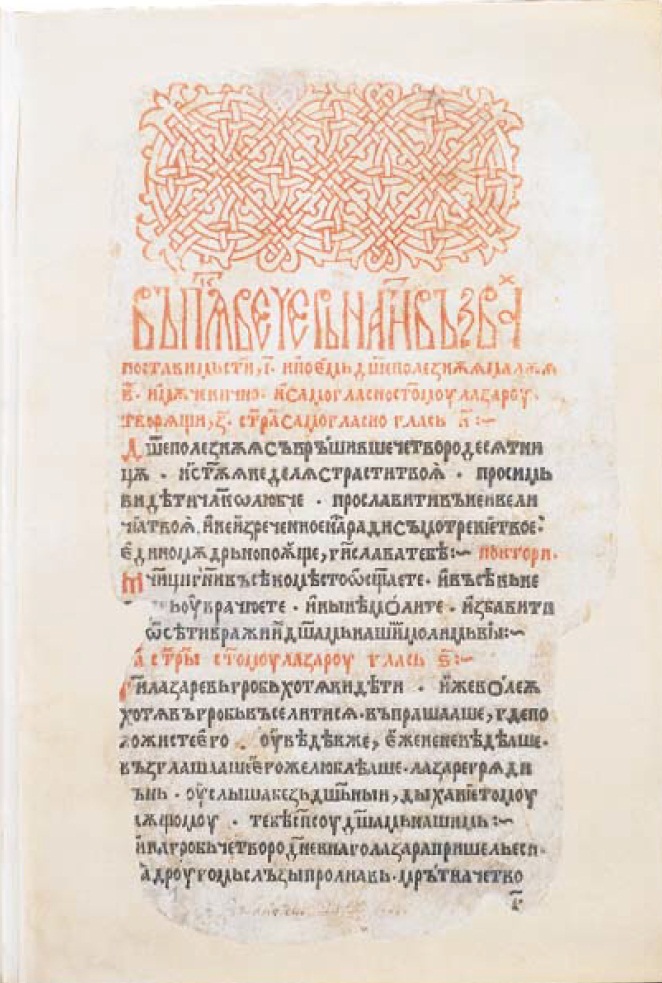|
Agapa
Agapa (russian: Ага́па) is an Old Church SlavonicSuperanskaya p. 278 and rare Russian female first name.Petrovsky, p. 37 It is derived from the Greek word ''agapē'', meaning ''love''. The diminutives of "Agapa" are Aga () and Gapa (). "Agapa" may also be a diminutive of the female name Agapiya Agapiya (russian: Ага́пия, from grc, Ἀγάπη) is an old and uncommonPetrovsky, p. 37 Russian Christian female first name.Superanskaya p. 250 Its masculine version is Agapy. Its colloquial form is Ogapiya ().Superanskaya p ....Superanskaya p. 250 References Notes Sources * А. В. Суперанская (A. V. Superanskaya). "Современный словарь личных имён: Сравнение. Происхождение. Написание" (''Modern Dictionary of First Names: Comparison. Origins. Spelling''). Айрис-пресс. Москва, 2005. * А. В. Суперанская (A. V. Superanskaya). "Словарь ... [...More Info...] [...Related Items...] OR: [Wikipedia] [Google] [Baidu] |
Old Church Slavonic
Old Church Slavonic or Old Slavonic () was the first Slavic literary language. Historians credit the 9th-century Byzantine missionaries Saints Cyril and Methodius with standardizing the language and using it in translating the Bible and other Ancient Greek ecclesiastical texts as part of the Christianization of the Slavs. It is thought to have been based primarily on the dialect of the 9th-century Byzantine Slavs living in the Province of Thessalonica (in present-day Greece). Old Church Slavonic played an important role in the history of the Slavic languages and served as a basis and model for later Church Slavonic traditions, and some Eastern Orthodox and Eastern Catholic churches use this later Church Slavonic as a liturgical language to this day. As the oldest attested Slavic language, OCS provides important evidence for the features of Proto-Slavic, the reconstructed common ancestor of all Slavic languages. Nomenclature The name of the language in Old Church Slavoni ... [...More Info...] [...Related Items...] OR: [Wikipedia] [Google] [Baidu] |
Given Name
A given name (also known as a forename or first name) is the part of a personal name quoted in that identifies a person, potentially with a middle name as well, and differentiates that person from the other members of a group (typically a family or clan A clan is a group of people united by actual or perceived kinship and descent. Even if lineage details are unknown, clans may claim descent from founding member or apical ancestor. Clans, in indigenous societies, tend to be endogamous, mea ...) who have a common surname. The term ''given name'' refers to a name usually bestowed at or close to the time of birth, usually by the parents of the newborn. A ''Christian name'' is the first name which is given at baptism, in Christian custom. In informal situations, given names are often used in a familiar and friendly manner. In more formal situations, a person's surname is more commonly used. The idioms 'on a first-name basis' and 'being on first-name terms' refer to the ... [...More Info...] [...Related Items...] OR: [Wikipedia] [Google] [Baidu] |
Greek Language
Greek ( el, label= Modern Greek, Ελληνικά, Elliniká, ; grc, Ἑλληνική, Hellēnikḗ) is an independent branch of the Indo-European family of languages, native to Greece, Cyprus, southern Italy (Calabria and Salento), southern Albania, and other regions of the Balkans, the Black Sea coast, Asia Minor, and the Eastern Mediterranean. It has the longest documented history of any Indo-European language, spanning at least 3,400 years of written records. Its writing system is the Greek alphabet, which has been used for approximately 2,800 years; previously, Greek was recorded in writing systems such as Linear B and the Cypriot syllabary. The alphabet arose from the Phoenician script and was in turn the basis of the Latin, Cyrillic, Armenian, Coptic, Gothic, and many other writing systems. The Greek language holds a very important place in the history of the Western world. Beginning with the epics of Homer, ancient Greek literature includes many works of l ... [...More Info...] [...Related Items...] OR: [Wikipedia] [Google] [Baidu] |
Diminutive
A diminutive is a root word that has been modified to convey a slighter degree of its root meaning, either to convey the smallness of the object or quality named, or to convey a sense of intimacy or endearment. A ( abbreviated ) is a word-formation device used to express such meanings. In many languages, such forms can be translated as "little" and diminutives can also be formed as multi-word constructions such as " Tiny Tim". Diminutives are often employed as nicknames and pet names when speaking to small children and when expressing extreme tenderness and intimacy to an adult. The opposite of the diminutive form is the augmentative. Beyond the ''diminutive form'' of a single word, a ''diminutive'' can be a multi-word name, such as "Tiny Tim" or "Little Dorrit". In many languages, formation of diminutives by adding suffixes is a productive part of the language. For example, in Spanish can be a nickname for someone who is overweight, and by adding an suffix, it becomes wh ... [...More Info...] [...Related Items...] OR: [Wikipedia] [Google] [Baidu] |


